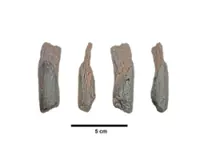FAKE cosmetics, massage pillows and sex toys. Crude homemade explosives. A Russian known as Warrior. A code word: Mary.
These are among the key elements of a suspected Russian-run sabotage plot that led to three parcels being detonated at courier depots in Britain, Germany and Poland last summer, said a person with knowledge of the Polish investigation.





